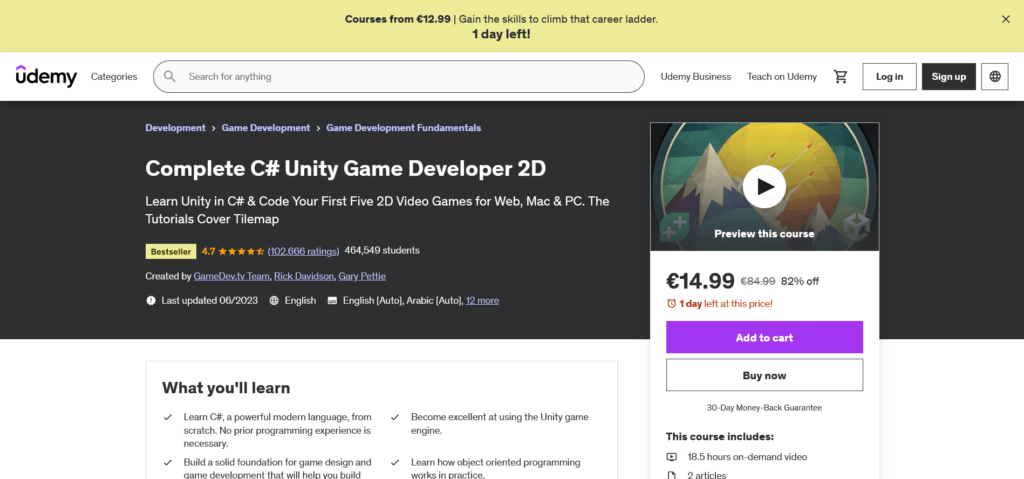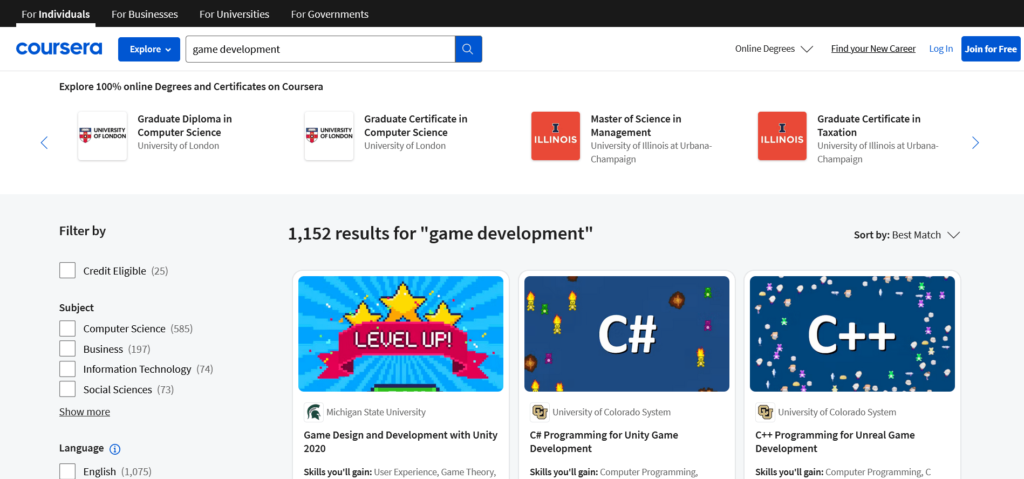Introduction
In the dynamic and ever-evolving landscape of the video game industry, acquiring the right qualifications and honing specific skills for a successful career has never been more crucial. As technology continues to advance, the demand for professionals equipped with the necessary skills for successful video game industry career is on the rise. This article delves into the key qualifications and expertise required to thrive in this competitive field, exploring the multifaceted dimensions that make up a well-rounded gaming professional. Whether you’re an aspiring game developer, designer, or part of the broader industry, understanding and cultivating the skills for successful video game industry career can significantly enhance your prospects and propel you towards a fulfilling and prosperous journey in the realm of interactive entertainment.
Educational Background
While there’s no one-size-fits-all formula for success in the video game industry, a strong educational foundation is often a crucial starting point. A bachelor’s degree in a relevant field, such as game design, computer science, graphic design, or animation, can provide you with essential knowledge and skills. Many successful professionals in the industry hold degrees in areas like computer engineering, software development, or even business and marketing, highlighting the interdisciplinary nature of game development.
Specialized Degrees and Certifications
For those seeking to specialize further, pursuing a master’s degree in game design or a related field can offer a competitive edge. Many universities and institutions around the world now offer advanced programs tailored to specific aspects of game development, including virtual reality, artificial intelligence, and game programming.
Moreover, obtaining industry-recognized certifications can validate your expertise and stand out on your resume. Certifications from organizations like the International Game Developers Association (IGDA) or Unity Certification can demonstrate your proficiency in specific tools and technologies widely used in the industry.
Technical Skills
A solid foundation in technical skills is paramount for anyone aspiring to work in the video game industry. Proficiency in programming languages such as C++, Java, or Python is highly valued, as it forms the backbone of game development. Familiarity with popular game engines like Unity or Unreal Engine is also crucial, as these platforms are widely used for creating cutting-edge games.
Graphic design skills, including proficiency in tools like Adobe Creative Suite, 3D modeling software like Blender or Autodesk Maya, and understanding animation principles, contribute to the creation of visually stunning and engaging game environments.
Soft Skills and Team Collaboration
Beyond technical expertise, soft skills play a pivotal role in a successful career in the video game industry. Effective communication, teamwork, and adaptability are essential qualities, as game development is a collaborative effort involving multidisciplinary teams. The ability to articulate ideas, receive constructive feedback, and work seamlessly with artists, designers, and programmers is vital for creating cohesive and immersive gaming experiences.
Building a Portfolio
In the competitive landscape of the video game industry, a strong portfolio can be your ticket to standing out. Whether you’re a game designer, programmer, artist, or sound engineer, showcasing your work through a portfolio demonstrates your capabilities and creativity. Include projects you’ve worked on, highlighting your role, contributions, and the impact of your work. This tangible evidence of your skills can make a lasting impression on potential employers.
Networking and Industry Involvement
Networking is a powerful tool for gaining insights, making connections, and discovering job opportunities within the video game industry. Attend industry events, conferences, and meetups to connect with professionals, share experiences, and stay updated on the latest trends and technologies.
Joining online communities, forums, and participating in game jams are additional ways to build a network and demonstrate your passion for game development. Platforms like GitHub can showcase your coding projects and collaborations, further solidifying your presence within the industry.
Internships and Entry-Level Positions
Securing internships and entry-level positions can provide invaluable hands-on experience and a deeper understanding of the industry’s inner workings. Many companies offer internships, allowing aspiring professionals to work alongside seasoned developers and gain practical insights into the development process.
Participating in internships not only enhances your skill set but also provides a chance to prove your capabilities to potential employers. Additionally, entry-level positions serve as stepping stones to more significant roles within the industry, allowing you to climb the career ladder progressively.

Best Online Education Platforms to Learn Skills for Successful Video Game Industry Career
The video game industry is a realm of innovation and creativity, and the path to a successful career within it begins with the right qualifications. With the rise of online education, aspiring game developers now have access to a plethora of courses and platforms tailored to their needs. We will explore the top online education platforms that empower individuals to acquire the qualifications necessary for a thriving career in the dynamic world of video game development.
Udemy

Udemy, a pioneer in online education, offers a plethora of courses tailored to various skill levels within game development. From introductory classes on programming languages to advanced tutorials on specific game engines, Udemy provides a versatile and accessible learning environment. Aspiring game developers can navigate their preferred learning path, gaining essential qualifications at their own pace.
Coursera

For those seeking a more structured and comprehensive approach, Coursera collaborates with renowned universities to provide specialized courses and even full master’s programs in game design and development. These courses offer in-depth insights into the industry, covering both technical and creative aspects. Coursera’s credentials carry weight, providing you with qualifications recognized by the industry.
LinkedIn Learning

LinkedIn Learning stands out for its focus on professional development, offering courses in game development, design, and programming. The platform provides a unique advantage by awarding industry-recognized certifications upon completion of courses. These certifications serve as a powerful testament to your qualifications, enhancing your credibility in the eyes of potential employers within the video game industry.
Pluralsight
Pluralsight adopts a skill-based approach, making it an ideal platform for honing specific technical expertise. With learning paths covering game design, programming languages, and the latest technologies, Pluralsight provides a structured journey for aspiring game developers. By mastering essential skills, you’ll build qualifications that are directly applicable to the demands of the video game industry.
Unity Learn
Unity, one of the most prevalent game engines, offers its own learning platform – Unity Learn. This platform focuses on providing tutorials, documentation, and hands-on projects, allowing aspiring developers to master Unity and gain industry-relevant qualifications. Unity Learn’s resources cater to both beginners and experienced developers looking to refine their skills.
Skillshare

Skillshare is a haven for creative minds, offering courses that delve into the artistic aspects of game development. From character design to storytelling techniques, Skillshare provides a platform for artists and designers to refine their craft, gaining unique qualifications that contribute to the aesthetic appeal of gaming projects.
Top 10 Questions About Qualifications and Skills for Successful Video Game Industry Career
1. What degrees are essential for a career in the video game industry?
To thrive in the video game industry, a solid educational foundation is paramount. A bachelor’s degree in game design, computer science, graphic design, animation, or related fields provides the necessary knowledge base. However, the industry embraces diverse talents, with professionals holding degrees in computer engineering, software development, and even business and marketing finding their niche.
2. Do specialized degrees enhance career prospects in game development?
Absolutely. Specialized degrees, such as a master’s in game design, can provide a competitive edge. Additionally, industry-recognized certifications from organizations like the International Game Developers Association (IGDA) or Unity Certification validate expertise in specific tools and technologies, boosting marketability.
3. Which programming languages are crucial for a career in game development?
Proficiency in programming languages like C++, Java, or Python is highly valued in the video game industry. These languages form the backbone of game development, empowering professionals to create innovative and seamless gaming experiences.
4. How important is familiarity with game engines like Unity or Unreal Engine?
Critical. Familiarity with popular game engines such as Unity or Unreal Engine is essential for game developers. These platforms provide the tools and framework necessary for creating cutting-edge games, making them indispensable skills for anyone entering the industry.
5. What role do graphic design skills play in game development?
Graphic design skills are paramount for creating visually stunning and immersive game environments. Proficiency in tools like Adobe Creative Suite, 3D modeling software, and an understanding of animation principles are invaluable assets for artists and designers in the video game industry.
6. Why are soft skills crucial for success in the video game industry?
Soft skills, including effective communication, teamwork, and adaptability, are essential for navigating the collaborative nature of game development. The ability to articulate ideas, receive feedback, and collaborate seamlessly with multidisciplinary teams is vital for success.
7. How can a portfolio enhance my prospects in the video game industry?
A compelling portfolio showcasing your projects and contributions is a tangible demonstration of your skills and creativity. Whether you’re a game designer, programmer, artist, or sound engineer, a well-curated portfolio enhances your chances of standing out in a competitive job market.
8. Why is networking important for a career in the video game industry?
Networking is a powerful tool for gaining insights, making connections, and discovering job opportunities. Attending industry events, conferences, and joining online communities, forums, and game jams can help you build a network, stay updated on industry trends, and showcase your passion for game development.
9. Are internships necessary for breaking into the video game industry?
Yes, internships provide invaluable hands-on experience and a deeper understanding of the industry. Many companies offer internships, allowing aspiring professionals to work alongside seasoned developers and gain practical insights, serving as stepping stones to more significant roles within the industry.
10. What entry-level positions are available in the video game industry?
Entry-level positions, such as game tester, QA analyst, or junior developer, offer opportunities to kickstart your career in game development. These positions provide practical experience, allowing you to learn and grow within the industry.
Conclusion
In conclusion, navigating the career in the video game industry requires a strategic blend of qualifications and honed expertise. As we’ve explored the essential qualifications and skills for successful video game industry careers throughout this article, it becomes evident that staying abreast of industry trends and continuously refining one’s craft is paramount. With an unwavering commitment to developing the skills for successful video game industry career, aspiring professionals can position themselves as invaluable assets in this dynamic sector. Whether it’s mastering coding languages, fostering creative design acumen, or cultivating effective teamwork and communication, the journey toward success in the video game industry is undoubtedly paved with the deliberate acquisition and application of skills for successful video game industry career.














